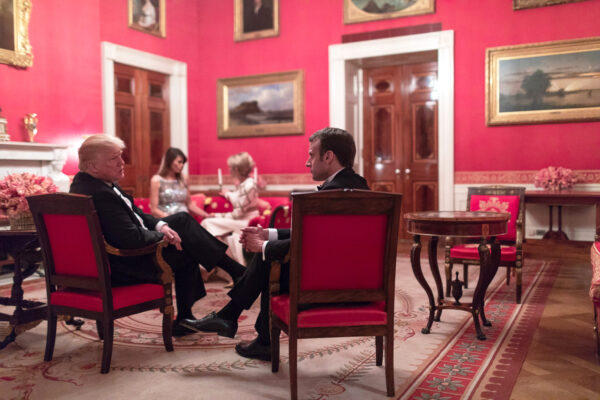
Donald Trump has consistently sided against Europe and European interests, from raising tariffs on European exports to rescinding the Intermediate-Range Nuclear Forces and Open Skies Treaties — which protected Russia’s neighbors — to paralyzing the G20 and the World Trade Organization to withdrawing from the Iran nuclear deal, the Paris climate accord, New START and the World Health Organization.
It’s no wonder Europeans prefer Joe Biden — from between 58 percent of Italians to 80 percent of Danes, according to YouGov.
Beyond hope for a normalization of transatlantic relations, six key issues are at stake for Europe in the election on Tuesday.
Agriculture
Trump’s agriculture secretary, Sonny Perdue, has argued against the EU’s proposed Green Deal, warning it would be “extremely prohibitive” to farmers and “jeopardize agricultural output.” His real fear is probably that the plan will lead to more protectionism, or at least close the door on genetically modified food imports from America.
Trump could impose more retaliatory tariffs and bring a formal complaint to the World Trade Organization (despite paralyzing the body’s dispute-settlement panel by vetoing the appointment of new judges). Biden is unlikely to do either.
China
Europeans share American concerns about China’s trade practices but see the issue more in economic than geopolitical terms. Europeans are also encouraged by China’s commitment to achieve net zero emissions by 2060.
Trump would probably go it alone whereas Biden would try to get the Western allies on the same page.
Digital
The European Commission is due to roll out new regulations for digital services in a month. Although support for antitrust is rising in the United States as well, Trump is likely to interpret new EU rules as an attack on American companies. He has been successful in convincing many European governments to keep out China’s Huawei.
A Democratic administration would more likely focus on regulating big tech at home.
Environment
Biden has promised to return the United States to the Paris climate accord and make unprecedented investments in the green economy. Trump has repealed environmental regulations.
Trade
The EU is waiting for the result of the election before imposing $4 billion in retaliatory tariffs. If Trump wins, expect the tariffs to go into effect.
Biden has promised to end what he calls the “artificial trade war” with Europe. If he wins, the EU may hold off in hopes of a negotiated solution. Either way, the EU wants to get rid of $7.5 billion worth of American tariffs on European goods.
Security
Trump has repeatedly berated allies for not spending 2 percent of their GDPs on defense, as agreed in NATO. His withdrawal of 12,000 American troops from Germany (which won’t happen until after the election) is an ominous sign. There are fears a reelected Trump would withdraw from the defense pact altogether.
Biden wouldn’t — but Europe needs to take its defense more seriously regardless of who wins.
